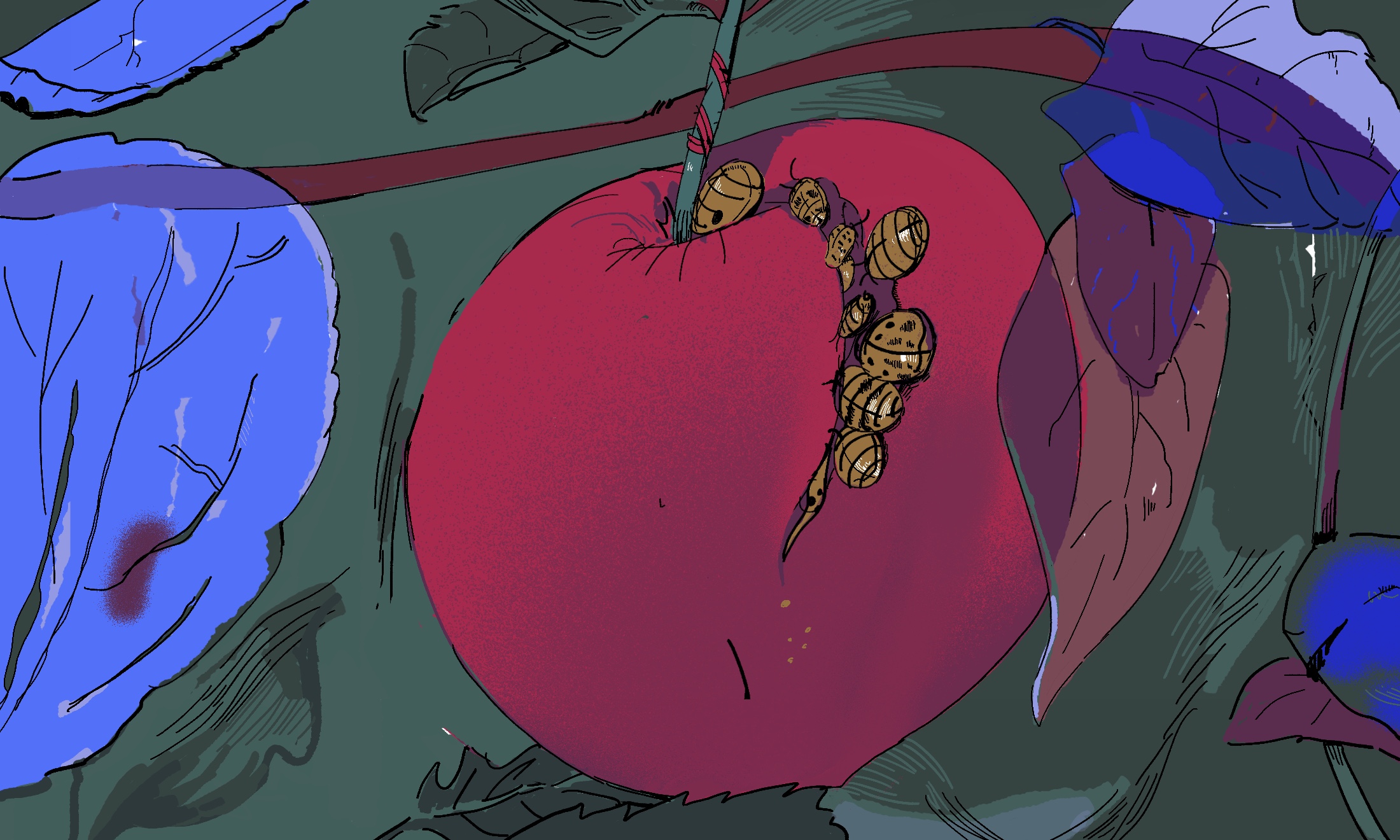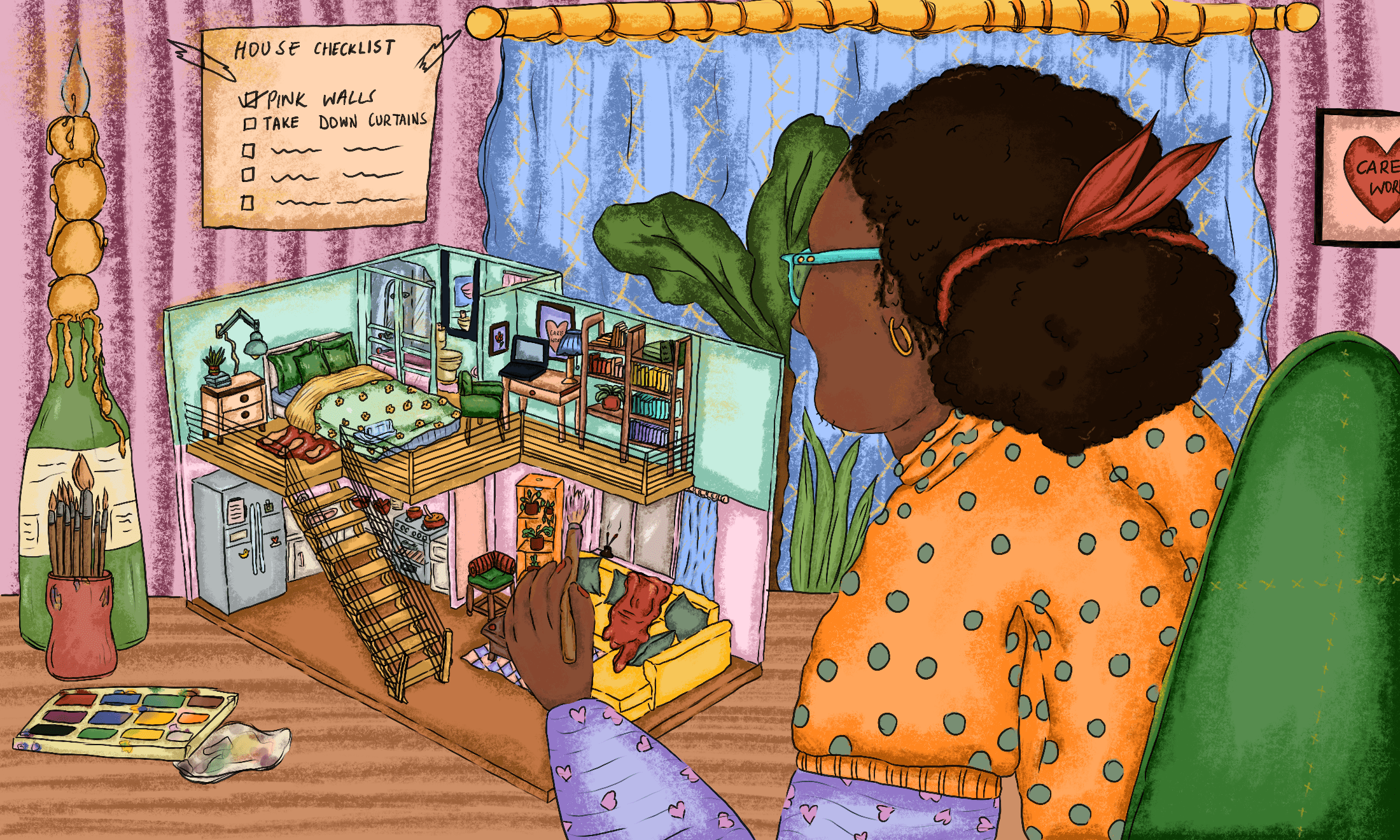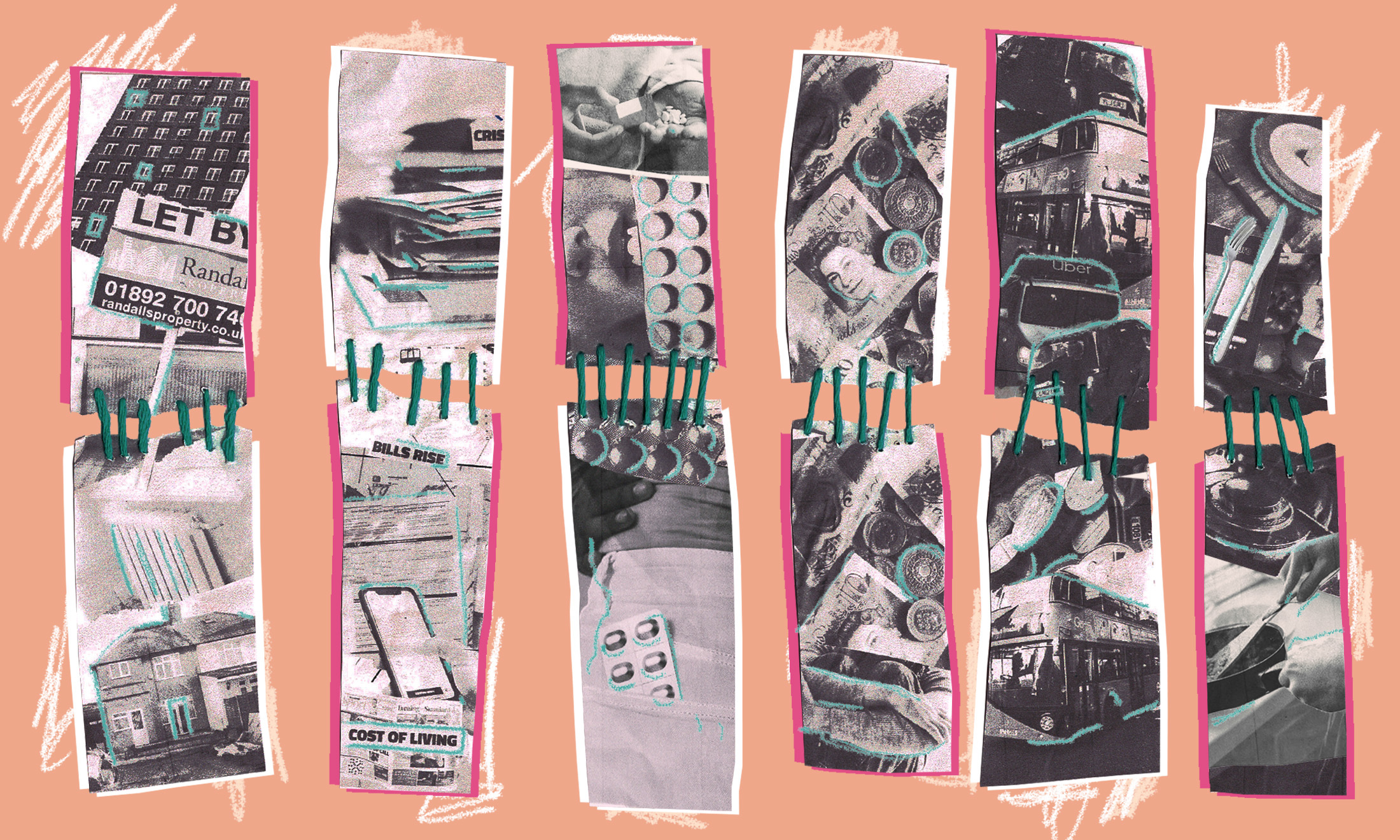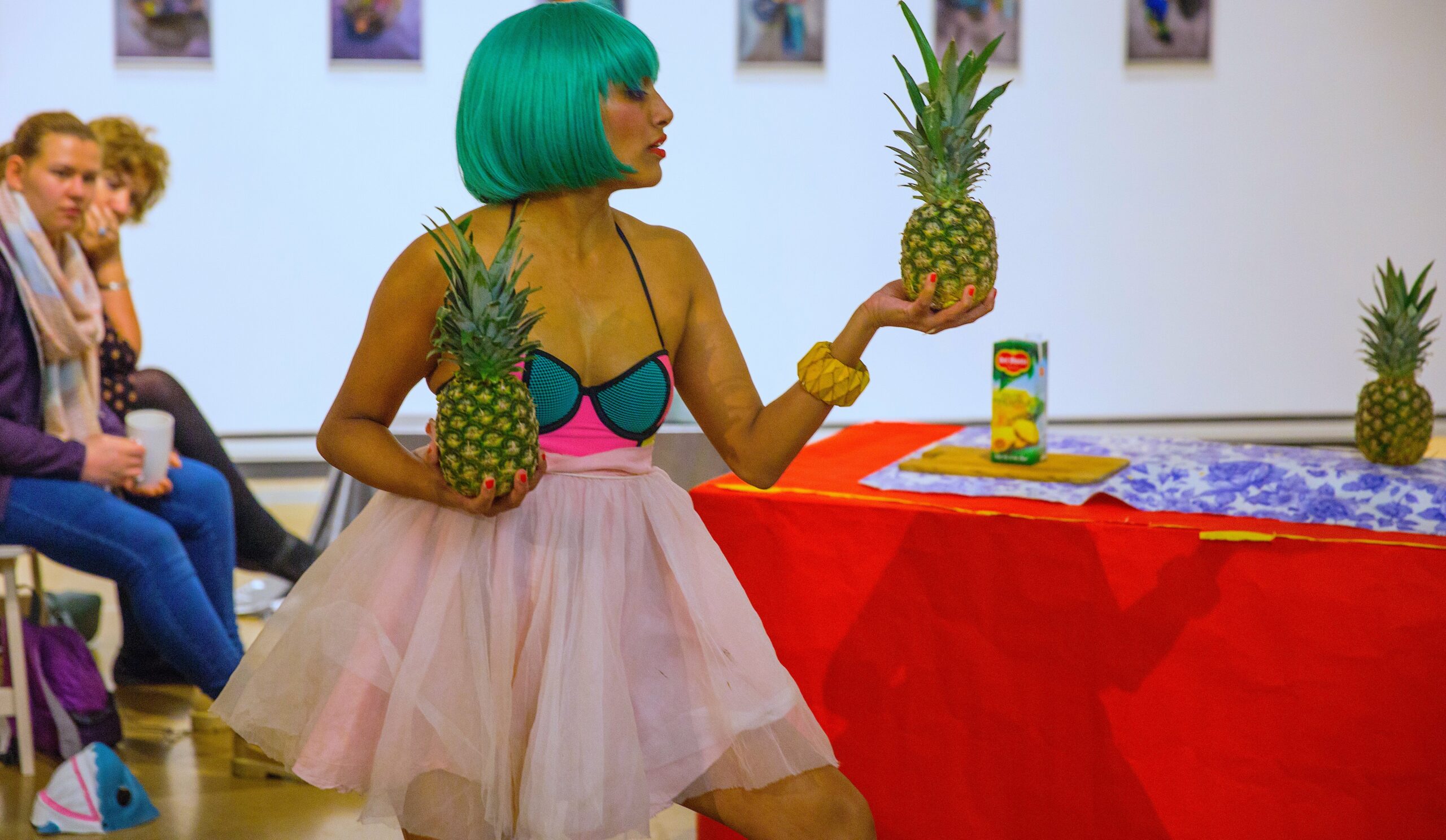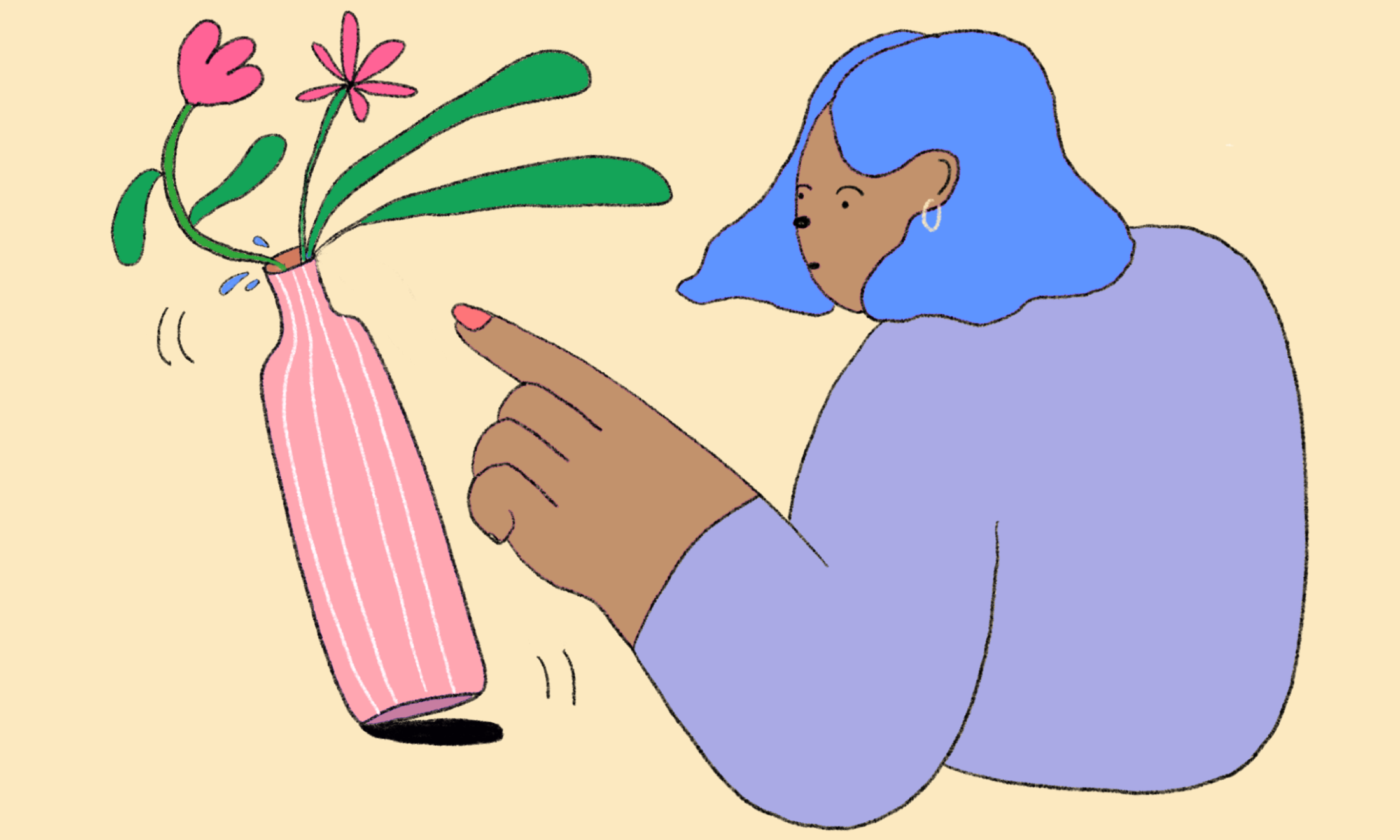
Courtesy of Netflix
Sex Education’s Maeve and Isaac caravan canoodle is a romantic scene like no other
As a disabled viewer you rarely get to see mutual desire, intimacy, and respect in on-screen relationships - especially not as hot as this
The Triple Cripples
30 Sep 2021
Light streams through the caravan window illuminating the shrinking space between Maeve’s face and Isaac’s. The sexual tension between the pair is palpable. She’s curious. “You want to know what I can feel?” he asks. And he tells her he can’t feel anything “below the level of injury” and that he can get hard, and also that he can cum. She traces her hand up and down his body, exploring with his permission. Due to his disability, Maeve understands she’d have to help Isaac take off his clothes, but she doesn’t presume or hastily undress him. Leaning her head down for him to kiss her ear, the whole scene is a masterclass in tenderness and eroticism. Its impact lies in its subtlety. And it is disabled sex as it should be shown. I have honestly never seen anything like this before on television.
Starting the third season of Netflix’s Sex Education, most, if not all, fans of the show were wondering whether adorably awkward Otis and eternally cool Maeve would get together. In the finale of season two, Otis had declared his love for Maeve over a voicemail message that was promptly listened to and then deleted by Isaac. Isaac’s voicemail saboteur antics portrayed him in a less than favourable light. What he did was a dick move, undoubtedly. But also compelling. So often, the characteristics of disabled people on screen are incredibly one dimensional. That is if they are shown, at all. Whether you back Isaac in the battle for Maeve’s heart, what is important is that his character is one of the very few on-screen portrayals of a disabled man with the same desires and urges as everyone else.
In the show, Maeve and Isaac have a summer holiday romance, building what looks like a comfortable routine of sharing breakfast together in the mornings. This caravan kiss is the culmination of mutual interest: Maeve wants him, too. This is only one of a handful of times that I can remember seeing someone with a visible disability being the object of desire. Growing up as a disabled person and almost always seeing everyone but you being fancied or romantically pursued in films and TV shows lead to the idea that if it were ever to happen, it could only occur within the fantasy or science fiction genres.
We, the Triple Cripples, highlight the narratives of POC women and non-binary people living with disabilities and when it comes to sex, we once wrote that “figuring out and being able to ask for what we want in a world that says we are being done a favour for being alive within it, is just one symptom of deep-rooted inequality. If we are meant to be grateful to just be here, do we have the right to want anything at all?”
Generally, the consent of disabled people is rarely considered because of the presumption of gratefulness at even being interacted with in the first place. Tweets and threads have been dedicated to those that are disabled having their personal space and autonomy being encroached upon by someone who “was just trying to help.” Due to the infantilisation of disabled people, we are not seen as sexual beings (or ONLY seen as sexual fetishes) and thus consent in this particular context would never really matter because the point is moot. Nobody would seek to interact or engage with us in such a manner.
It is because of this presumption of gratefulness that it is striking that Maeve is also conscious of asking Isaac his feelings on each new touch and exploration of his body, as well as hers. Owing to Isaac’s disability, there may be an expectation of Isaac trying to cater to Maeve’s every sexual want and need. Not because he wants to be a generous lover or finds pleasure in pleasing his sexual partners, but because he is supposed to try harder. As a disabled man, he would be considered the ‘undesirable’ in this pairing with Maeve. This is something that is also thrown at those that are not deemed to be attractive by relative societal standards, disabled people, fat people and other denigrated groups. His pleasure, as well as hers, being centred in this engaging and intimate moment, is significant to see, especially on such a popular show. We are encouraged to focus on and widen our view of what sex could be and could look like. This scene does away with the societal expectation of disabled people constantly contorting themselves to fit non-disabled people’s rigid and unforgiving rules of engagement. This is a space Isaac and Maeve have created for one another where both of their whole beings are welcomed and accommodated.
This is complicated further when you add race. There’s been a few times a disabled Black wheelchair user can sometimes be seen in the background of the show (episode one at, 48:06 for the eagle-eyed). Now that it has been confirmed that the show has been renewed for a fourth season, it would be affirming to see this character afforded similar agency as Isaac. So far it’s been very much a ‘blink and you will miss it’ moment but disabled Black people, like everyone else, deserve and should expect to have their experiences captured and highlighted within the media. Otherwise, the continued erasure of our existence will lead to people like me knowing (down to the seconds) when we spot another person like us.
“The consent of disabled people is rarely considered because of the presumption of gratefulness at even being interacted with in the first place”
Disabled people are often seen as a pity project when it comes to matters of the heart (and other organs…). Isaac’s eventual confession to Maeve about his betrayal through deleting the voicemail, and the following conversation that they share cement the idea that the saying “all’s fair in love and war” absolutely includes disabled people, too. Up until Isaac tells Maeve, we see the pair becoming closer and bonding over the similarities in the background that they share, especially with their experiences of growing up in the fostering system. Isaac’s disability is frequently, but unobtrusively, mentioned throughout his tenure on the show. We are shown that Isaac’s brother, Joe, is most likely his primary caregiver. However, it is shown in an offhand manner, woven into his everyday life as it would be in reality. His disability and the assistance he may require or receive is only a small part of who he is.
Over the three seasons of Sex Education, we have seen many portrayals of various sexual encounters by a wide-ranging group of people. As Maeve and Isaac explore their dislikes, turn-ons and figure each other out, the audience is able to see two people actively participating and communicating healthily. An on-screen rarity. The consent that is requested and shared by Isaac and Maeve will have positive effects on those that are watching, especially for disabled and non-disabled teenagers. They are being shown what healthy communication looks like, what making space for yourself and your sexual partner looks like, and how sex can be made accessible for everyone.
Disabled people’s sex lives, (which absolutely do exist!) need to be shown more in media. We need to be able to see the melding of accessibility and sexiness because they can and do exist together in the same space. Sex can be fun, funny, a little bit awkward, sexy, and truly hot. And if this is true of sex, then it is also true when a disabled person or people are involved. Hopefully this intimate, but brief, moment shown by Sex Education will lead to more and different portrayals of the kind of sexual intimacy that disabled people experience. To the point where it becomes so every day and expected that it is no longer noteworthy.

